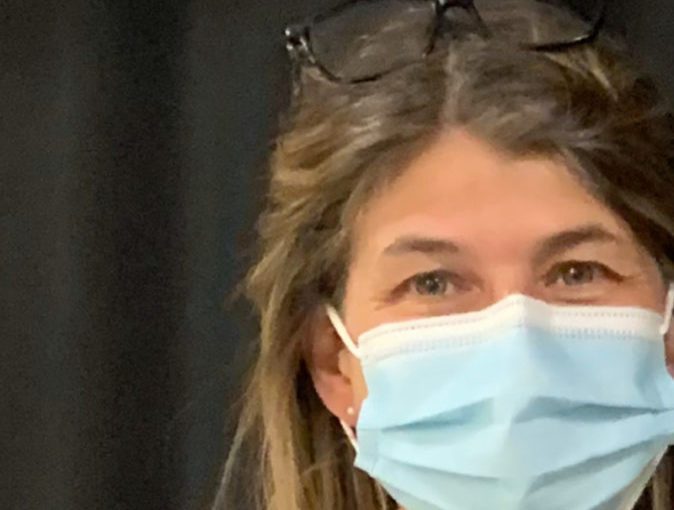At the Heart of Medical Practice: an Interview with Hamilton’s Dr. Angela Carol

Dr. Angela Carol, MD,CCFP,FCFP is a family physician who has spent the bulk of her career working to help vulnerable populations faced with chronic illnesses like addiction, mental illness and chronic pain.
Her quest to advocate for patients and break down barriers that prevent access and wellness means that she has been active in shaping local, national and clinic policies as well as training procedures to mitigate the opioid epidemic.
Her ability to shape policy stems from hands-on work in a number of roles. These include her positions as former medical advisor with the College of Physicians and Surgeons of Ontario, assistant clinical professor of family medicine on the faculty of Health Sciences at McMaster University and as lead physician at Hamilton Urban Core Community Health Centre (CHC) in Hamilton’s Code Red Zone, where the life expectancy of residents is a full 20 years less than anywhere else in the city.
She also collaborates with an assortment of community stakeholders through her leadership position at CHC to assist immigrants and refugees, seniors, youth, the homeless and unattached patients and people who use drugs.
What motivated you to become a physician?
Dr. Angela Carol: I started my career as a child and youth worker as well as a social worker. Regularly seeing children, youth and families in crisis from chronic illnesses like mental illness, chronic pain and addiction made me realize that I wanted to make a difference in a more direct way. I wanted to treat mental illness, chronic diseases including addiction and pain and advocate for patients as a physician. My goal remains to break down barriers that prevent access to appropriate treatment – and wellness in general.
Did you have a mentor when you were starting out? If so, what did you learn from your mentor?
Dr. Angela Carol: Yes, I did. I believe it is important for everyone starting their career in medicine to find a good mentor. I also believe it is particularly important for women launching their careers in the medical field to seek out knowledgeable and supportive women who have been in the field.
I learned that we are always learning and to adopt that mindset early-on: never stop learning. My mentors, Drs. May Cohen and Tracey Moriary guided me on finding work-life balance, which often proves difficult for people in the medical profession. As a result of that guidance, I often try to incorporate quality time with my kids with my volunteer work. I helped with their athletic pursuits, for example, on the hockey bench as a trainer and coaching their soccer teams.
I also learned that there will always be challenging days but the stresses of the job come from caring about patients – and we should never stop caring. I always take the time for patients and all staff. While that is sometimes necessary in the moment to rush through, when you are confronted with a situation that demands complete focus, I always give the time needed.
Your job is high pressure. What is your advice to the next generation of doctors on how to manage stress?
Dr. Angela Carol: I cannot stress enough that people in the medical field should focus on prioritizing and always taking time for themselves so they can do what is necessary in the moment to care for others and themselves. Always have compassion and empathy for others, which will give meaning to such a highly stressful job.
I am reflective by nature and am a proponent of physical fitness. I use the time when I am exercising to think through any difficulties or lessons that I need to learn in my work and in my home life.
I also like to have a kind of roundtable discussion with the teams I work with when we have a difficult situation so that we can all learn from each other.
I find meditating and running very helpful to keep me focused on the North Star of every day.
What is the biggest thing you have learned from your career?
Dr. Angela Carol: Humans are fallible. It is an unavoidable fact of being human. Many people are out there doing the best with the cards they have been dealt. Some have been born into households where addiction is rampant, where poverty is a part of their daily existence, where the challenge of finding their next meal or affording prescriptions is a very real concern. Some people have only known struggle and trauma since the day they were born.
I have learned that breaking the cycle of addiction can help people see possibilities for their lives that they would not otherwise have seen. My job is often difficult, but it is also rewarding beyond what most people can comprehend.
There are more women than men now enrolled in medical school, but that has only been the case the last few years. What was it like when you started your career? Do you have any pointers for the next generation of women physicians?
Dr. Angela Carol: Going through residency as a female physician in the early days often meant being overlooked in a number of slight ways. Although, I’d say my experience was way more positive than most female physicians who got started back then. Like Drs. May Cohen and Tracy Moriarty.
The next generation of female physicians should be empowered by their education and go into every interaction prepared to learn: more about medicine, more about their colleagues and more about themselves.
Be emboldened by the trail blazers who came before and be ready to expand your knowledge and expertise in order to continually be better than the day before. Do not ever forget the supreme goal of medicine – to really care for others, which will ultimately help.

